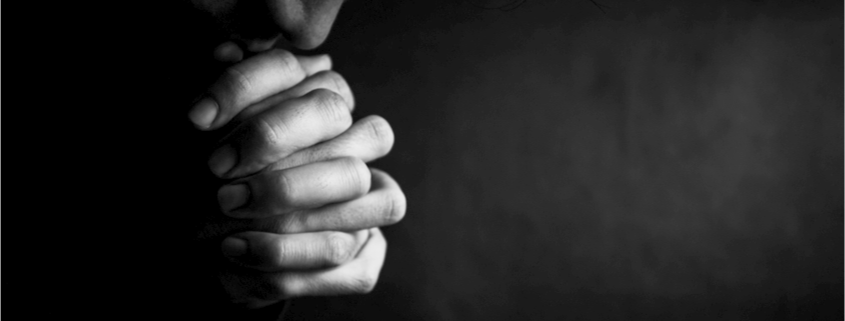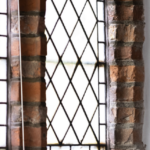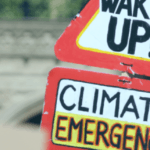A Presidential Address to the Oxford Diocesan Synod on Saturday 16 November. Update: A pastoral letter was sent to the Church of England by the Archbishops on 19 November: “It’s time to leave our echo chambers and listen to others.” Read the letter at cofe.io/GE19Archbishops
[Scroll down this page to watch Bishop Steven delivering the address]
My title for this address is How to Pray for this General Election – by which I mean how to pray for the renewal of our political life in our nation at this present time. This may seem a foolish or foolhardy topic to address. Foolish because, of course, Christians already know how to pray. Foolhardy because saying anything in the present political climate might be instantly taken hostage. My inner Sergeant Wilson has been rising-up all week and asking: “Do you really think that’s wise?”
But these are unusual times, and I do not believe silence is an option. There are things that need to be said and done to address the turmoil in which we find ourselves. It’s not my purpose to tell anyone how to vote or to be party political. The Church has a responsibility to pray for our Government and our nation in the best of times and in the worst of times. But how should we then pray?
Over recent months, friends and colleagues on different sides in Parliament have in all seriousness asked me to pray for them and our Government. So great is the rising tide of desperation, the sense that we are running out of answers, the sense of paralysis at the heart of national life. Those requests are sincerely made, and I want to respond to them: hence the need to give thought to how we pray. So how might we set about that task especially in this Advent season?
Simple physical symbols help me to pray. This week I took a piece of rope. I placed six knots in the rope because I believe there are six different dimensions to our prayers for this election. Each morning until we have a new Government and possibly beyond, I intend to pray through this sequence for the life of our nation, for a new Government, for positive ways forward and the renewal of our political life.
I share these six movements with you as a resource for your discipleship and ministry. You may like to make your own rope or fashion your own patterns. The inspiration for all six comes from the Book of Psalms, not just from the verses I will share with you but the pattern of prayer which is caught by the Psalms and which stands at the heart of the prayer life of the Church worldwide. The six movements are praise, lament, thanksgiving, intercession, discernment and stillness.
Praise
Our prayers must always begin with the praise of God: we cannot rightly pray until we have brought to mind the greatness and the sovereignty and the majesty of God. We cannot pray for our human politics until we have them in the right perspective in the context of God, our creator and redeemer.
God is our refuge and our strength, a very present help in trouble.
Therefore we will not fear, though the earth should change, though the mountains shake in the heart of the sea; though its waters roar and foam, though the mountains tremble with its tumult. Psalm 46.1-3
I often come to prayer, having listened to the news or looked at the paper with my mind full of the politics of the day. Before I can pray, I need to lift my eyes and catch a vision of God as creator, God who is above and beyond all I can imagine, God who is there generation after generation, the God of stability and power and love, our Father in heaven, hallowed be his name. This God is the one we worship, who calls us to pray, to whom the inhabitants of the earth are like grasshoppers as Isaiah says. From eternity to eternity, God is God. God is our rock, our fortress, our perspective and our strength. As my mind catches a vision of God’s majesty, so I take the first step in praying for human power and authority and good government.
Those of us called to preach and to pray in public during this Advent and Christmas season have the challenge of setting before the nation a fresh vision of God and of the kingdom of God and the story of God’s salvation. That seems to me to be more important, not less in a time of uncertainty. In seasons of earthly turmoil, our society needs a heavenly vision of God’s sovereignty and justice and peace, of God’s majesty incarnate in the Christ Child, of Christian hope for this world and the next, of God’s justice and care for the poorest, of peace and reconciliation and purpose, of God’s love for each person in creation. As our nation comes to the end of its resources, so as the Church we need to courage to unfold the resources of God.
By the grace of God, hundreds of thousands of children and adults will come to worship in our churches over these coming weeks. May each of them catch a fresh vision of eternity and God’s majesty, sovereignty and love.
Lament
The second movement of my prayer is towards that other great theme of the Psalms, to lamentation. Blessed are those who mourn, says Jesus, for they shall be comforted. We pray your kingdom come because there is so much still to be set right in God’s world.
Help O Lord for there is no longer anyone who is godly; the faithful have disappeared from humankind. They utter lies to each other; with flattering lips and a double heart they speak. Psalm 12.1-2.
Those are the opening verses of Psalm 12, but they could be from scores of other Psalms. At the heart of the scriptures, we do not have a book of intercessory prayers. We have a text composed in almost equal parts of praise and lamentation: we are in sorrow for the pain and turmoil in the world.
There is much that we need to lament together as we move through this General Election. Although we might all name different things, there are elements which reasonable people of every political party would hold in common.
I lament and grieve the hate speech and the death threats which have become a regular part of the life and experience of our politicians, especially women. I lament and grieve still that in the last General Election campaign, one of our MPs, Jo Cox, was murdered on the streets of her constituency. I lament and grieve the racism which insinuates itself into the politics of left and right. I lament, and I name the fear of antisemitism which has caused one of our Rabbis in the Diocese to speak out. I lament and name the fear of Islamophobia which concerns many in the Muslim community.
I lament the plight of the earth and the effects of climate change globally and throughout the United Kingdom, and the suffering caused by floods this week in my former diocese. I lament the lack of energy and resource invested in education and health. I lament the mental health crisis in our nation, especially among the young. I grieve at the prospect of further division in our relationships with Europe and within the United Kingdom. I lament at the inequalities in our nation and long for the poorest to be protected and wrongs to be set right. I grieve that truth is such a casualty of political life on all sides of the debate.
Naming what is wrong to God is a powerful pathway of prayer. We lament without being partisan, without laying blame at the door of individuals. We acknowledge what is wrong, we lay injustice before God, we are angry, and we weep in order to carry that anger and sorrow into the rest of our prayer and our lives.
Thanksgiving
My third movement of prayer is thanksgiving. From Psalm 92:
It is good to give thanks to the LORD, to sing praises to your name, O Most High; to declare your steadfast love in the morning and your faithfulness by night. Psalm 92.1-2
There is much that is wrong, but there is much for which we need to give thanks. For politicians and people of goodwill on every side of the political debate who give their whole lives in the cause of good leadership and government. For good local MP’s and candidates. For dedicated civil servants. For the rule of law which is respected. For sincere and open debate whenever it happens. For the privilege of living in a democracy. For the resources our nation can apply to good government here and elsewhere. For the leadership we are still able to offer to the world. Our situation is serious, but we must not swallow the lie in our prayers or our lives that we are without hope and a future.
The Psalms are such a gift to us. So often we come to our prayers disorientated, overwhelmed and confused. We remember who God is; we name our griefs and sorrows, we begin to feel solid ground under our feet, a re-orientation, a strengthening for the task before us.
Intercession
And we find the strength for the fourth movement of our prayer: intercession. From Psalm 90:
Turn, O LORD! How long? Have compassion on your servants! Satisfy us in the morning with your steadfast love, so that we may rejoice and be glad all our days. Psalm 90.13-14.
I find it easier to pray when I come to intercession via praise and lament and thanksgiving. I have a clearer vision of God, a more accurate picture of the world and some signs of light and hope.
I find myself praying that people will participate in the election and will vote. I find myself praying that the election will not be about a single issue nor the potential prime ministers but a serious appraisal of policies. I pray for a Government which can offer leadership for a five-year parliament. I pray for the formation of that Government’s policy on the environment, for the encouragement and regulation of technology, for pathways to reconciliation, for the care of the most vulnerable, for our influence on the world for good.
No party and no politician is perfect. Democracy is often about compromise and choosing the least bad option. So I pray for an electorate that can make informed and responsible choices for a way forward for our country and for politicians of wisdom and character who can listen and find good, practical pathways forward. I pray for moderation, kindness and mutual respect in political debate.
You might think then with this fourth movement that our prayer is finished. There are two further knots in my rope and two further stages to our prayers.
Discernment
The first is discernment. Is there anything I need to do? Any action I need to take?
In Psalm 94, I think, it is God who speaks amid lament and praise:
Who rises up for me against the wicked? Who stands up for me against the evildoers? Psalm 94.16.
There is an echo here of God’s voice in Isaiah’s vision: Whom shall I send and who will go for us? (Isaiah 6.8).
Is there some way I am called to make a difference? Are there people to be comforted, encouraged or challenged? Is some change needed in my own life? Is there a call to be answered? Do I need to put in the hard work and read the manifestos? How can we be as wise as serpents yet as innocent as doves? If there is to be renewal in our political life, then God will be calling good people into public leadership.
Stillness
And the final act is to come back to the beginning. The work of prayer must end in stillness, in peace and trust before God, in reorientation and rest.
I began with the opening verse of Psalm 46 and end with the final verse of the same Psalm. Once more, it is God who speaks:
Be still and know that I am God. I am exalted among the nations. I am exalted in the earth. The LORD of hosts is with us; the God of Jacob is our refuge. Psalm 46.10-11
How are we to pray in this General Election? In one sense, in any way we can. In another, the Psalms call us to prayer which is rooted in praise of God, which gives space to lament and thanksgiving, to intercession, to hearing God’s voice and at the end to stillness, confidence and peace.
+Steven Oxford
16 November 2019



